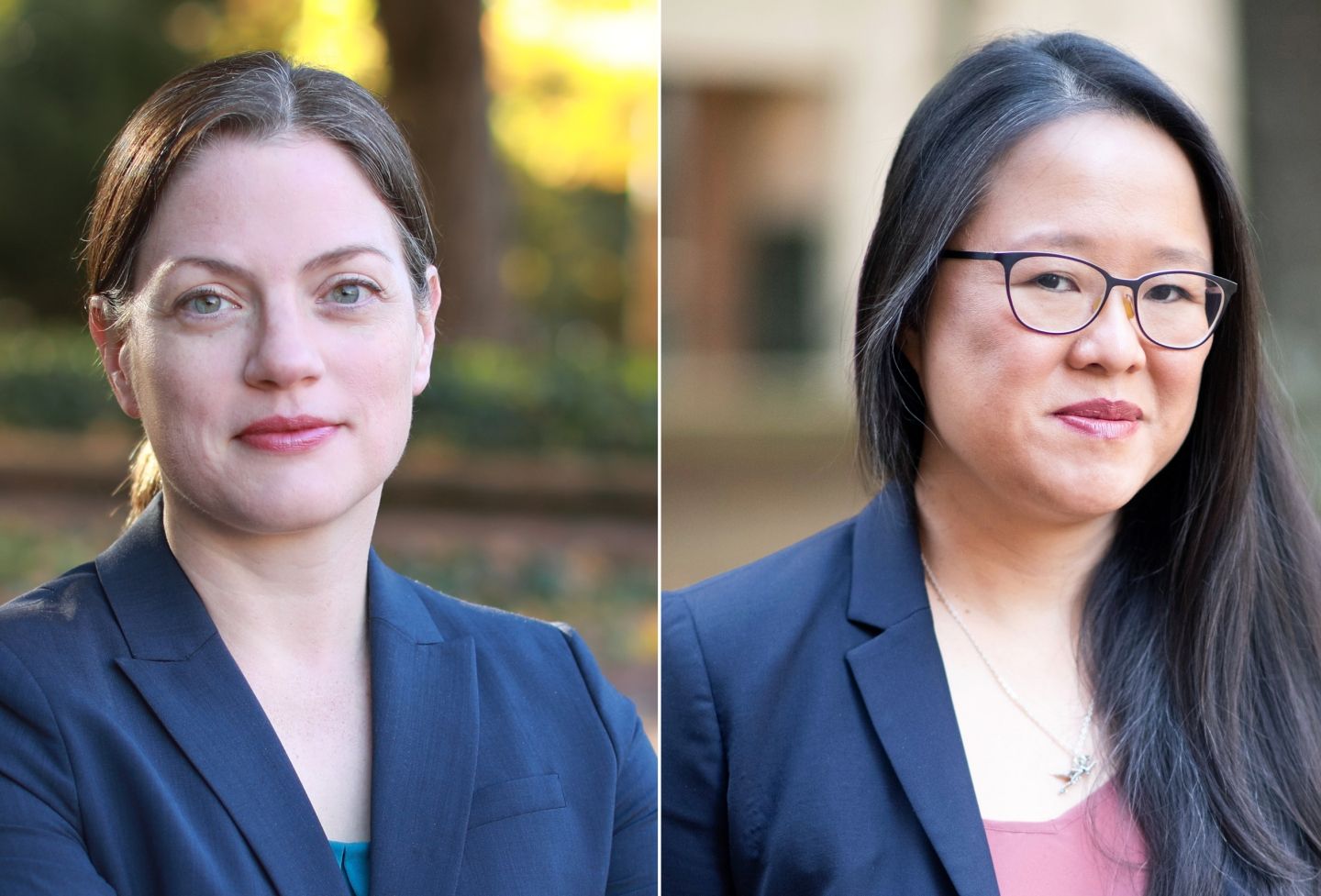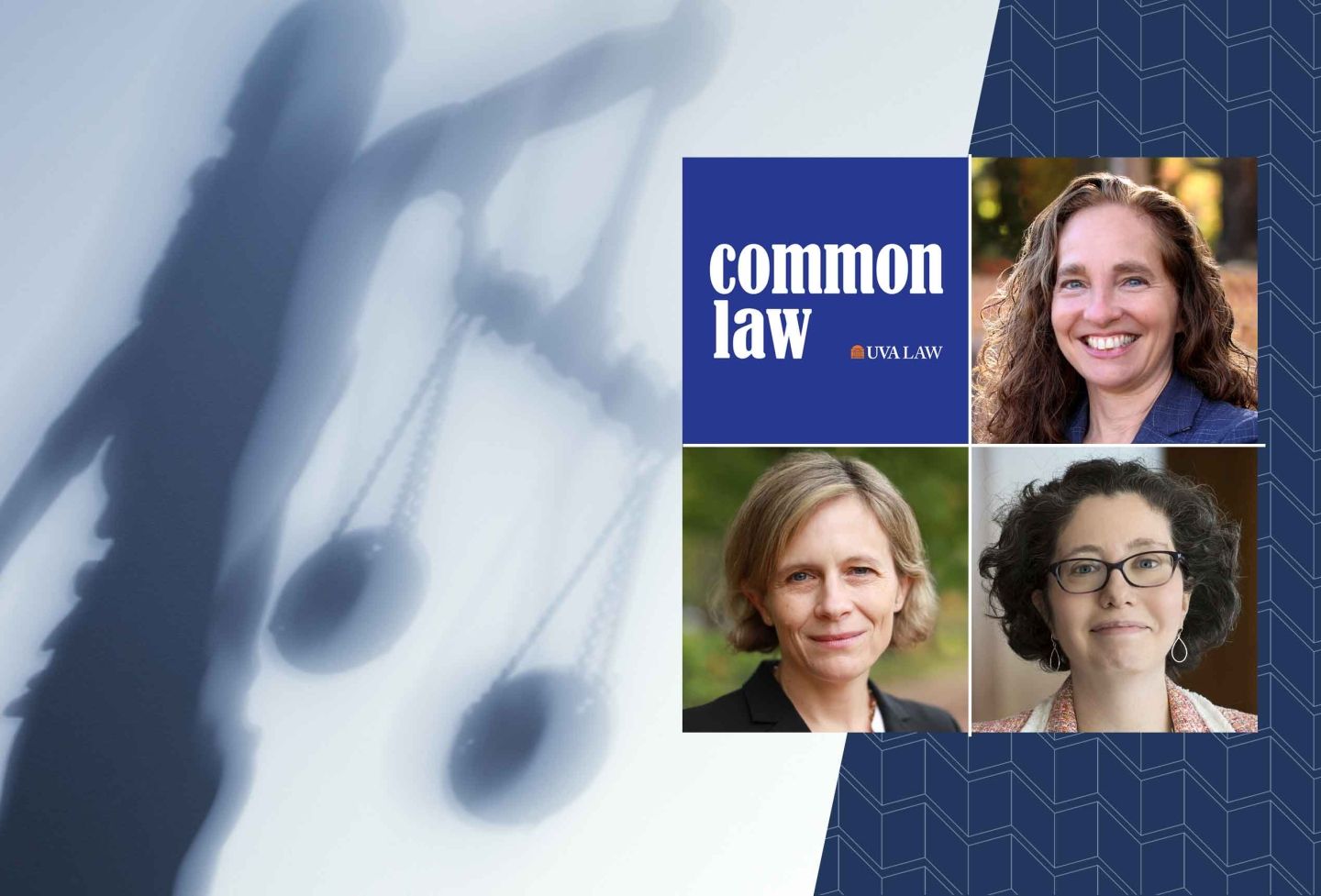Christopher Williams, a Ph.D. candidate at the University of Chicago, has been named a research assistant professor and a Race, Place and Equity Fellow at the University of Virginia School of Law.
Announced in January 2021, the University-wide fellowship is funded by a three-year, $5 million grant from the Andrew W. Mellon Foundation to create an interdisciplinary undergraduate program exploring Race, Place and Equity.
In addition to educating undergraduate students, the program expands opportunities for emerging scholars like Williams to advance their research, writing and teaching around race, justice and equity. The grant partially funds 10 postdoctoral fellows over each of the three years, offering a path for the fellows to pursue tenure-track faculty appointments.
“It’s about getting some publishing experience, getting some research experience and getting teaching experience,” Williams said. “There is pedagogy built in, you go to faculty meetings, and you’re trained as faculty.”
Williams, who already holds a J.D. and M.A., is on target to earn his Ph.D. in sociology next spring. His dissertation, “Finding Fairness in Abolition: The Elimination of Cash Bail in Illinois,” explores how Illinois became the first state in the U.S. to eliminate the use of cash bail in its pretrial system. He previously published “Blue Racing: The Racialization of Police in Hate Crime Statutes,” in the University of Michigan Journal of Legal Reform in 2021 and “Gatekeeping the Profession,” in the Cardozo Journal of Equal Rights & Social Justice in 2020.
“Blue Racing” looks at how Blue Lives Matter bill proponents used “racial framing” to legitimize their claims that police face particular dangers and to give cover to legislatures to pass the bills, while implicitly criticizing the Black Lives Matter movement. Williams’ research found that it is safer to be a law enforcement officer than to be a Black American, and that there have been no prosecutions of hate crimes for violence against police officers in states that passed the laws.
“Gatekeeping,” which has been cited by at least three other papers, explores how the structure of U.S. legal education erects “racialized and caste-based barriers” that disproportionately prevent Black and underprivileged students from entering the U.S. legal profession, and he draws analogies to the ways a similar legal education model has perpetuated the caste system in India.
During his fellowship, in addition to teaching duties, he plans to write one or more articles expanding on his dissertation regarding the successful 2020 movement that made Illinois the first state to abolish cash bail as part of the state’s “SAFE-T” justice reform bill. Williams said his work follows the history of the movement, from impetus to inception to adoption.
“I’m charting the history through the stories of the activists, the organizers, the impacted people, the legislators — they’re saying, ‘This is what we did, this how we did it, this is what it felt like, this is what it looked like when we were riding on busses to go downstate to talk to the legislators when all this racial upheaval was going on in 2020, and this is how we got it across the finish line,’” Williams said. “I’m also analyzing the law, and the implications of what it means — for communities of color and everyone in Illinois — to eliminate cash bail.”
Another project on his research agenda seeks to understand how the Los Angeles public school system — the first in the country to hire a police force — came to abolish that force.
Williams earned his J.D. as a merit scholar at the University of California, Irvine School of Law and his master’s degree in sociology from the University of Chicago.
“I started off wanting to go to law school to be a prosecutor to help vulnerable people, and that ended up not being my journey at all,” he said. “Today I’m less focused on sending people to jail and I’m more focused on making people whole and how to make society safer so that people don’t commit the offenses that are going to send them to jail.”
Documenting Illinois’ justice reform movement was not Williams’ first brush with racial conflict. He earned his bachelor’s degree from the University of Missouri, and he was on campus and part of the Black student community in 2015 when a handful of racially charged episodes — including someone drawing a swastika on a wall with feces — ignited protests, a hunger strike and the threat of a boycott by the football team. The situation escalated into online threats against Black students after the campus chancellor and the president of the university system both resigned. (The university incidents came about a year after the riots and unrest in Ferguson, Missouri.)
“I was a part of that historic activism — we occupied the quad, we ousted the president and the university promised to make a lot of changes — but there was a lot of backlash after that, just as there was some backlash after the elimination of cash bail was passed,” Williams said.
The lesson for him — and the lesson he wants to apply to all his work and teaching going forward — is that backlash and regression are never the end of the story.
“There have been multiple periods of time where there’s been progress and retrenchment — you look at slavery, women’s rights, civil rights — there are always these periods where we take these steps forward and then we take a bunch of steps backwards,” Williams said. “With the Supreme Court’s affirmative action ruling, there are people right now across the nation who are going to be creative and think about how we can still fight. A lot of news rightfully goes to the retrenchment and rollbacks, but the stories of the people who are going to keep fighting are the ones that are often not told.”
His job at UVA, he said, is to cultivate those stories of success and “use them as examples for people who are thinking about the criminal justice system and thinking about how to eliminate disparities.”
Professor Kim Forde-Mazrui chaired the fellowship search committee, which also included Anne Coughlin and Craig Konnoth.
“We are thrilled that we were able to recruit Chris as our second Race, Place and Equity fellow,” Forde-Mazrui said. “His legal and sociological training are impressive, as are his scholarly projects. His research explores how oppressed communities of color can overcome systemic barriers to achieve equity and justice through the law.”
Williams, who has taught undergraduate sociology courses, hopes to teach criminal law and procedure while at UVA. “But what I’m actually most excited about is the opportunity to shape the minds of the next generation of people who are going to go out and change people’s lives and the way we think about the world,” he said.
“If I can inspire students to feel like they can make a difference in this country, I’ll teach anything,” Williams said. “I’ll teach people how to tie their shoestrings if it means that we can be in the same place and we can learn from each other how to make this world a better place.”
Founded in 1819, the University of Virginia School of Law is the second-oldest continuously operating law school in the nation. Consistently ranked among the top law schools, Virginia is a world-renowned training ground for distinguished lawyers and public servants, instilling in them a commitment to leadership, integrity and community service.


